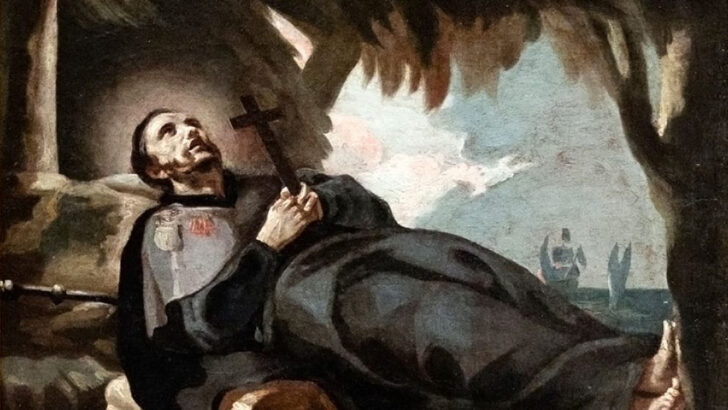The Great Dreamer: The Life and Mission of St Francis Xavier
by Brendan Comerford (Messenger Publications, €12.95 / £11.95)
St Francis Xavier is among the most celebrated of the original body of Jesuits. He has been the subject of many biographies and devotional books in the past – the author mentions some of them on which he has relied in his preface – but in his new short biography Brendan Comerford wishes to introduce him perhaps to a wider and young readership unfamiliar with his legend.
The book is laid out in a straightforward way, following the life of the saint and its development after his early years, moving from place to place through Paris, Venice, Rome and Lisbon, till about a third of the way through he lands him in India and the City of Goa.
Task
Francis saw his task as one of converting as many people as he could to the Christian faith – it was later said he converted more people than St Paul.
But he would baptise them and then move briskly onto the next place, moving ever eastward. He would leave others to undertake the more difficult task of building a Christian community in the distant shores of Asia. Francis called at so many places it is also like leafing through the pages of Marco Polo.
His great goal was China and then Japan. He worked in China, but there the greater task was left to others such as Matteo Ricci, ‘the wise man from the West’. In China the Jesuits adopted the dress and status of mandarins – it was the surest way for a teacher to get a hearing.
China, of course, had heard the name of Christ first from Nestorian monks who had crossed the continent of Asia to reach the Imperial Court at Peking. They were ‘imperfect Christians’ – somehow in the mind of Renaissance Catholics they did not count.
He became known as ‘the Apostle of the Far East’, that is to say China and Japan”
But then on though the islands of Malaysia, from which so much of Europe’s spices had come for centuries. And finally the way was open to Japan but the saint died without reaching that final goal on the offshore island of Sancian (now called Sangchuan) here he died in a hut that was not his own on December 3, 1552, a full decade after he had first arrived in the Indies.
The news was brought to Ignatius and the other Jesuits in Europe. Soon a popular devotion began, leading to reports of miracles and favours granted, and eventually to his canonisation. He was beatified on October 25, 1619, and canonised on March 12, 1622. He became known as ‘the Apostle of the Far East’, that is to say China and Japan.
Though Xavier failed, others eventually brought Christianity to Japan. The experiences of those early Japanese Christians, which recreated the Church of the martyrs, was evoked by the Japanese novelist Shusaku Endo, himself a Catholic, in his novel Silence (1966).
But writing this review there came into my mind the recollection of the Japanese Christian that Nikos Kazantzakis encountered on a voyage to the Far East in 1935. This elderly man, Kawayana San, fascinated the novelist, who could not understand what the appeal of Christianity was for the Japanese soul.
Sacrifice
His new friend explained to him that, in contrast to Shinto or Buddhism, Christianity was based on the concept of sacrifice. That was something that the long centuries of Japanese culture understood very well. This cross-cultural encounter is described in the novelist’s Travels in China and Japan (1964). Xavier, too, if he had landed in Japan, would have shared that understanding of sacrifice.
He repeatedly makes the rash statement in his correspondence that an unbaptised adult is going to hell”
Brendan Comerford is alert to the often dismaying nature of the heroic virtue of the saints. But in Xavier he finds aspects of imperfection that make him more human. He was headstrong and often imperious; he would not take advice, as Ignatius counselled those in a leadership role should do.
Also he is dismayed by Xavier’s theological failings. It seems that on those continuous travels he never opened a book. Moreover, Comerford writes, “Xavier’s too-quick theological formation in Paris was very unfortunate. His theology concerning the salvation of the unbaptised was woefully inadequate. He repeatedly makes the rash statement in his correspondence that an unbaptised adult is going to hell.”
But then again, he was always cheerful in what must often have been conditions of great solitude and extreme loneliness when he completely lacked the support of comrades.
Altogether then a remarkable man, of whom Brendan Comerford gives a kindly and admiring appraisal. A book perhaps on which to begin what may well be a very trying year for us all.


 Peter Costello
Peter Costello
